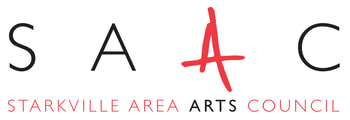John W. BatemanExecutive Director Just because you sing build, paint, write, sculpt, throw, perform it, does not mean the patrons will come flocking to buy your work. No surprise there, right? How else can an artist fund their work, without maxing out credit cards and working until 4 a.m. behind a bar for tips? Without [groan] going to Mom & Dad for help or begging friends to donate to another Indiegogo campaign? Grants? I laugh anytime I get a “free offer” for access to a grant database. I already have plenty of those offers: the challenge is time (and bandwidth). It takes time to even sort through 1) who will fund 2) which art discipline 3) in my region 4) for my specific program 5) for an organization of our size. That doesn’t even involve the hours it takes to complete some grant applications. Just ask anyone who has submitted a grant application to the NEA or Mississippi Arts Commission (60 hours and 3 weekends and 14 cups of coffee, thank you). The search is even harder for artists trying to find charities and foundations that make grants to individuals, when most grantmakers only want to fund tax-exempt 501(c)(3) charities. (NOTE: SAAC does award grants to individuals for select art projects). Finding a “fiscal sponsor” can help. Often used with start-up and small charitable projects, fiscal sponsorship is a relationship between an established charity and a project (or an individual) where the charity provides a certain amount of oversight (usually financial or legal) in exchange for a fee. The project remains fairly autonomous otherwise, and benefits from the tax-exempt status of the charity. At a minimum, the relationship requires an alignment of missions (as written and documented, not over beers at happy hour) between the charity and the project. In some ways, this might be viewed akin to a parent who monitors an allowance. Although the structure of these relationships can vary widely, individual artists can find tremendous benefit in one significant way: patrons and other funders can treat donations as charitable contributions. Ultimately, a fiscal sponsor opens up funding options that aren’t otherwise available to artists, and can even help start-up organizations build infrastructure and capacity before formally organizing as an independent nonprofit. Want help for your project? Fractured Atlas is a well-known organization that offers this service to individuals. Another national organization that provides fiscal sponsorship is Alliance of Artist Communities. Some regional charities and community foundations may do this for limited circumstances. In fact, SAAC recently entered into a fiscal sponsor relationship with Sunday Funday. Remember: the sponsor will have some oversight of your work, and the fundraising and asking for money still remains your task. The payoff, however, can be hugely helpful, particularly if your project needs funding. Creating a massive light installation? Building an outdoor sculpture the size of a house? A fiscal sponsor relationship just might be the comfort that a donor needs to donate 4 or 5 digits to your work. Now, if we could only help you locate Hermione Granger’s time-turner so you can write another grant application... |
Archives
March 2023
Categories
All
|
|
P.O Box 2070
Starkville, Mississippi 39760 [email protected] [email protected] 662.268.6231 Hours: Mon - Fri 10am - 2pm ( closed Sat-Sun ) |
|
SAAC is sustained by donors and sponsors. Donations amounts are flexible and can be recurring. Learn more by clicking the button above. |
We need you - whether or not you're an artist! Our biggest 2 events (Art in the Park and Cotton District Arts Festival) require dozens of helping hands, so jump right in! |
©2020 Starkville Area Arts Council. All Rights Reserved.
#starkvillearts #starkvilleartscouncil #starkvilleareaartscouncil
#starkvillearts #starkvilleartscouncil #starkvilleareaartscouncil
COMMUNITY ENGAGEMENT: SAAC is an equal opportunity organization. We do not discriminate on the basis of race, color, religion (creed), gender, gender expression, age, national origin (ancestry), disability, marital status, sexual orientation, or military status, in any of its activities or operations. These activities include, but are not limited to, hiring and firing of staff, selection of volunteers and vendors, operation of programs, and provision of services. We are committed to providing an inclusive and welcoming environment for the public, all members of our staff, volunteers, vendors, and artist communities.

 RSS Feed
RSS Feed



